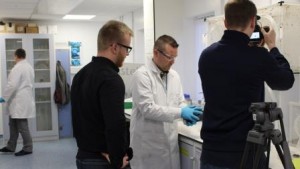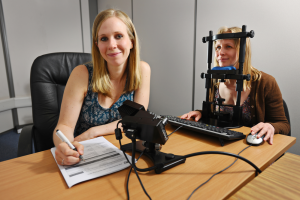Industrial Strategy Green Paper
The Government launched the Industrial Strategy Green Paper and consultation this week. The paper focuses on improving Britain’s innovation and productivity in key areas alongside upskilling the workforce to become world leading. The government suggest a number of areas of industry specialism that should be supported:
- clean energy
- robotics
- healthcare
- space technology
- quantum technology
- advanced computing and communications
The document frequently references the role of Universities as innovation leaders pushing for commercialisation and greater productive cooperation with business. It states that the ‘neglect of technical education’ should be redressed and insinuates that higher-level technical education will be pushed towards the new Institutes of Technology (£170 government investment announced – see below). There is an emphasis on rebalancing the difference in Britain’s economic geography through infrastructure investment. In addition, it criticises how UK research funding is currently heavily invested in the ‘golden triangle’ (Oxford, Cambridge, London) and calls to build on research strengths in businesses as well as other universities. The strategy has a strong focus on STEM and Wonkhe have reported that The British Academy are urging the government not to forget investment in social sciences and humanities teaching and research, which they argue are vital to the continued development of the UK’s services sectors.
The consultation ends in April, we’ll be in touch shortly about how you can contribute to a BU response.
While the strategy has only just been launched it was preceded by the announcement of the new Industrial Strategy Challenge Fund (Nov 2016) and consultative workshops. The workshops aimed to ensure that the challenges identified match UK business capability and are based on the best available evidence for scientific and commercial success on the global stage. The challenges mirror the industry specialisms proposed in the green paper but also mention the creative industries and integrated cities. The workshops conclude this week, implementation plans are expected to follow from the government and the first challenge is expected to be announced in March.
In an interesting article in The Conversation Graham Galbraith, VC at Portsmouth, urges Universities to shun new institutions for innovation and instead form a network of hubs building on relationships with employers, skills organisations and FE colleges. Furthermore he resists the government’s distinction between academic and technical education, seeing the productivity answer through flexible routes to university study and developing skills courses that employers need in accessible ways. He believes the university sector would deliver this far more quickly than new Institutes of Technology. Galbraith also criticises REF 2021: “The government wants the UK to be better at commercialising its world-class, basic research. But the… require[ment]…to include all academic staff…will have the effect of making universities re-balance their staff’s priorities so that there is more focus only on peer-reviewed research and less on outward-facing activities like business collaborations.”
Brexit –The Supreme Court has ruled that Parliament must vote to trigger Article 50 which begins the Brexit process. The government timescale is to trigger Article 50 by end of March and to this end they have introduced a European Withdrawal Bill (EWB). The European Withdrawal Bill gives the PM the power to notify the European Council of the UK’s intention to withdrawn from the EU through the required Act of Parliament. It is being fast tracked through Parliament. Parliamentary time is scheduled for 31 Jan, 1 Feb, 6-8 Feb. The House of Commons Education Select Committee continues visits to Universities (Oxford, UCL) to examine impact of Brexit on HE. At the UCL visit (Wednesday) Michael Arthur (Provost) broke the UCAS data embargo revealing a 7% drop in EU applicants in the current cycle. The Guardian leads with ‘first decrease after almost a decade of unbroken growth blamed on… Brexit’. Committee Chair, Neil Carmichael is reported on Twitter as asking whether HE needs a sector-specific Brexit deal – panel response ‘yes absolutely!’
Higher Education and Research Bill (HERB) – The Lords continue to scrutinise the HERB carefully with the long list of amendments. The list has stopped growing quite so quickly but new amendments proposed this week include one to set up a new UKRI visa department that will sponsor academics (507ZA). So far apart form the first one, no amendments other than government amendments have been passed, but the level of debate and the length of the list suggests that there may have to be some concessions by the government. James Younger, the government lead on the Bill in the Lords, wrote to Peers on 25th January about the bill.
Given the timing of the Brexit discussions, Wonkhe speculate that to achieve the timescales for the Bill and to clear sufficient parliamentary time for the European Withdrawal Bill to be passed the government may make concessions on HERB. Key discussions this week:
- NSS statistically unfit for TEF – Lord Lipsey discussed the statistical inadequacies of NSS and the implication for this as a TEF metric. “The NSS in the TEF is using—or rather, abusing—statistics for a purpose for which the NSS was never designed.” Lipsey acknowledged that the Government have gently retreated from the emphasis on NSS scores – in their latest instructions to assessors they stated: “assessors should be careful not to overweight information coming from the NSS“. This was reinforced by Chris Husbands, Chair of TEF, who informed a meeting at the House of Commons this week that his team would “not be overweighting the NSS” when awarding ratings this year. The proposed amendment was withdrawn after Viscount Younger: stressed the NSS was not the primary source of information for the TEF and that the framework was about much more than metrics. “Providers submit additional evidence alongside their metrics, and this evidence will be given significant weight by the panel”. HE continued: “we cannot ignore the only credible, widely used metrics that captures students’ views”.
- There were also debates about the gold/silver/bronze ratings and the government provided reassurance that Bronze was “above a high quality baseline”. This contradicts statements made by some in DfE before the final specification was agreed about Bronze institutions “needing improvement”. The panel have praised positive communication on this subject.
- Validation – The government have issued a factsheet for the Lords on Validation which provides explanation from the perspective of an alternative provider seeking to enter a validation arrangement. It describes Clause 46 of HERB, which gives the Office for Students (OfS) power to commission authorised HE providers to provide validation if other providers decline. It states such authorised providers are free to choose whether they wish offer this service, however once an arrangement is in place the OfS could require them to validate award) delivered by other registered HE providers. The commissioned arrangement would be made public. The controversial Clause 47 which appoints OfS as the validator of last resort was also discussed. The controversy arises as OfS isn’t an academic institution and doesn’t hold Degree Awarding Powers. The OfS will advise the Secretary of State (SoS) if intervention is required (likely through an evidence based report and stakeholder consultation) and the SoS would then authorise the intervention through regulation which is subject to parliamentary scrutiny.
- Contract Cheating – The amendment proposed by Lord Storey on contract cheating was withdrawn following Government reassurance. Lord Storey provided a passionate discourse including detailed sector information and cheating statistics. Baroness Goldie confirmed that the Government were addressing cheating referencing the (Aug 2016 published) QAA investigation and Jo Johnson’s commitment to close working to progress the recommendations. She revealed that the Minster would shortly announce a new initiative to tackle cheating in conjunction with QAA, Universities UK, NUS and HEFCE.
TEF
The 15 page written submissions for year 2 of the TEF were finalised and submitted this week, and this was the final opportunity for institutions to opt out of the TEF. Although there may have been others who have not published their positions, most Scottish Universities have opted out, as well as the Open University. Given the difference in the Scottish funding system they have less to gain from the TEF – but the 4 who have opted in have noted international reputation as a crucial factor. The OU explain their non-participation is due to the poor fit of the metrics with their social mobility demographic.
And the future of the TEF? According to Research Professional, a German academic has criticised the way that teaching excellence funding is being used in Germany.
“Whereas lower-ranked universities have tended to spread their funding from the programme thinly across faculties and courses, higher-ranked institutions have had the luxury of being able to focus on priority areas, the analysis found.
“You are starting to see emerging differences between disciplines taught at different universities,” Bloch told Times Higher Education on 17 January. For the first time, elite universities are starting to build up strong institutional identities when it comes to teaching, in an effort to get further ahead.
“It will be a long time before we reach the stratification that you see in the American system [around teaching], but we are seeing a difference for the first time in how resources in teaching are distributed,” he said.
UCAS 2016 entrants report – this data includes applications, offers and placed rates by sex, area background (LPN-polar 3), and ethnicity. BU’s report can be selected from the drop down menu towards the end of the webpage. The Guardian reports on the lower offer rates to black applicants. Wonkhe covers the HEIs that have a significant upward or downward trend in acceptances
Research Impact training: Parliament are running a Research, Impact and the UK Parliament event in Bristol on Wednesday 1 March. It covers the basics of the Parliamentary process and how academics can engage with parliament through their knowledge and research to inform scrutiny and legislation, including the impact of influencing policy to support REF submissions.





 My name is Oliver Cooke and I am currently in my third year of study on the BA Honours Media Production course. As part of my Graduate Project, I am developing a media package in order to showcase a number of projects that have been awarded
My name is Oliver Cooke and I am currently in my third year of study on the BA Honours Media Production course. As part of my Graduate Project, I am developing a media package in order to showcase a number of projects that have been awarded ![InnovateUK_LogoA_Interim_RGBx320govuk[1]](http://blogs.bournemouth.ac.uk/research/files/2014/12/InnovateUK_LogoA_Interim_RGBx320govuk11-300x90.jpg)

 Jisc are running a consultation on which co-design ideas to develop. We are into the last few days of voting – voting closes on the 30th January.
Jisc are running a consultation on which co-design ideas to develop. We are into the last few days of voting – voting closes on the 30th January.











 REF Code of Practice consultation is open!
REF Code of Practice consultation is open! BU Leads AI-Driven Work Package in EU Horizon SUSHEAS Project
BU Leads AI-Driven Work Package in EU Horizon SUSHEAS Project Evidence Synthesis Centre open at Kathmandu University
Evidence Synthesis Centre open at Kathmandu University Expand Your Impact: Collaboration and Networking Workshops for Researchers
Expand Your Impact: Collaboration and Networking Workshops for Researchers ECR Funding Open Call: Research Culture & Community Grant – Apply now
ECR Funding Open Call: Research Culture & Community Grant – Apply now ECR Funding Open Call: Research Culture & Community Grant – Application Deadline Friday 12 December
ECR Funding Open Call: Research Culture & Community Grant – Application Deadline Friday 12 December MSCA Postdoctoral Fellowships 2025 Call
MSCA Postdoctoral Fellowships 2025 Call ERC Advanced Grant 2025 Webinar
ERC Advanced Grant 2025 Webinar Update on UKRO services
Update on UKRO services European research project exploring use of ‘virtual twins’ to better manage metabolic associated fatty liver disease
European research project exploring use of ‘virtual twins’ to better manage metabolic associated fatty liver disease